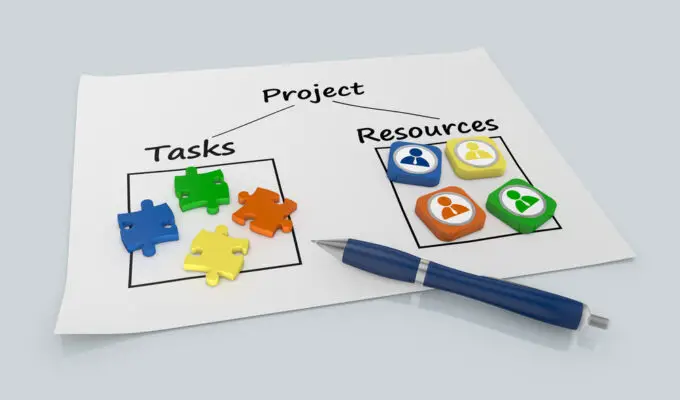As the modern job market continues to evolve, the demand for temporary positions in varied fields has surged to unprecedented heights. In particular, temporary project manager jobs have become attractive options for both employers and job-seekers, driven by specific business scenarios and market forces.
This demand reflects the shifting dynamics of the professional landscape. Companies are increasingly exploring flexible staffing solutions, and professionals are leveraging temp roles for many personal and career benefits.
As a potential candidate for such a role, it’s crucial to understand the market, the skills and strategies you need to excel in securing a job, and how you can utilize these opportunities for your career progression.
Market Demand and Advantages of Temp Project Manager Jobs
Let’s cut right to the chase: temporary project manager jobs are on the rise and there is a roaring demand for these roles in today’s weathervane workforce.
But what’s triggering this upsurge? The answer lies at the intersection of innovative business tactics and the evolving professional preferences of today’s workers.
In the Pantheon of multitasking, project managers reign supreme. Commanders of a cross-skilled skillset, are expected to juggle a perplexing variety of roles at a time, from risk assessment maestros to communications orchestrators, troubleshooter, and beyond.
However, it’s not just the job’s intricacies that draw professionals like moths to a flame but the very nature of these positions as temporary. Let’s delve into what’s catalyzing this seismic shift.
Projects are unique, temporary ventures with a defined start and endpoint created to deliver a specific product or service.
Aligning the tenure of project managers with the life cycle of individual projects just makes sense. This engagement model mitigates the risk of idle resources post-project completion and presents a more cost-effective solution for companies.
Businesses can leverage specialized skill sets by selecting project managers tailored to specific tasks. Thus, they’re not just filling a position; they’re strategically assembling a dream team, a crack squad of professionals each handpicked for their unique prowess. In the midst of turbulent markets and fierce competition, this tactic can be a veritable game-changer.
On the other side of the coin, these temporary roles unshackle professionals from the confines of a static job title, offering them an avenue to hone diverse skills, accrue knowledge from different industries, and bolster their career trajectory like never before.
They lure professionals with the promise of varied experiences and expose them to different business cultures, methodologies, and challenges.
If career growth were a sailboat, varied experience would be the wind that propels it forward. By diversifying their portfolio, project managers can break free from the silos that rigid, permanent roles often foster.
The thrill of spearheading new ventures coupled with the gratification of seeing a project through to completion is a potent cocktail for professionals thirsty for exposure and experience.
Moreover, these temporary positions make it easier for project managers to maintain a healthy work-life balance. Freedom from long-term commitment allows them to take breaks between projects, spend time with family, pursue hobbies, or even venture into entrepreneurial activities.
Temporary project manager roles are here to stay despite changing business vocabulary and job descriptions.
They have catapulted to prominence, fueled by prudent business practices, professionals’ quest for development, and a collaborative fusion of matching corporate needs with professional expectations.

Securing Temp Project Manager Jobs: Skills and Strategies
In today’s business landscape’s dynamic and agile world, securing temporary project management roles entails mastering specific, cutting-edge skills and adopting adaptable, proactive strategies.
The following considerations are non-negotiable for those seeking to thrive in such volatile territory.
Firstly
Adopting a flexible mindset is critical. Anticipating change and staying ahead of the curve allows one to pivot quickly and navigate through evolving project landscapes. Perseverance, a level of comfort with ambiguity, and an ability to learn quickly are paramount.
Secondly
An understanding of ubiquitous technology is a critical factor. Digital proficiency not only refers to the ability to handle project-specific software but extends to being aware of emergent technological trends that may impact project execution. It may include anything from AI to Blockchain, all potentially transformational technologies in the project management world.
Moreover
Being adept in agile project management methodology is increasingly sought after. The agile methodology, characterized by iterative progress and flexibility, lends itself well to nabbing temporary project management roles.
It requires one to be adaptable and quick-thinking and highlights the importance of mid-course artifact evaluations and corrections, all crucial for successful project execution.
Communication
is another non-negotiable skill. A project manager must relay information effectively to various stakeholders – team members, clients, and upper management.
This involves clarity in expression and an empathetic understanding of different perspectives.
Crafting an impactful personal brand
is a pertinent strategy. Given the temporary nature of these roles, having a strong, memorable professional identity helps stand out amidst fierce competition.
Promoting one’s unique combination of experience, skills, and passion offline and online – LinkedIn, for example – can lead to exciting project opportunities.
Networking
holds significant import. Building and maintaining connections within the industry can lead to compelling opportunities.
Attending industry events, webinars, workshops, or joining related professional groups might sound mundane but can provide fertile ground for seeds of future assignments.
Lastly
It is key to understanding the industry’s nuances where one aspires to secure a project role, whether healthcare, IT, or construction.
Industry knowledge, trends, major players, and the competitive landscape contribute to an enriched understanding of the projects one might oversee.
In closing, honing these skills and implementing these strategies can make the difference between barely surviving and thriving in the aggressive domain of temporary project management roles.
In a world where change is constant, success lies with those who can navigate the change rather than fight against it.

Making the Best of Temp Project Manager Jobs
Capitalizing on temporary project management roles goes beyond just leveraging diverse skills and experiences for personal development and forward-marching career trajectory.
It’s about employing a more flexible mindset to match the transient nature of these roles. Flexibility, remember, is the new business currency of the 21st century.
Professionals who adapt and shape their ability to flex and pivot in response to the ever-evolving landscape of project demands and outcomes not only survive but thrive in these roles, positioning themselves as invaluable assets in any project across any industry.
Being a technology maestro is no longer an added advantage; it’s a necessity. Understanding and leveraging ubiquitous technology is fundamental in maximizing the potential of temporary project management roles.
This ranges from project management software and data analytics to the application of AI and machine learning. Utilizing these tools allows for efficient management, faster decision making, and productivity enhancement, raising your employability quotient to unprecedented heights.
Another key to unlocking the full potential of these temporary roles lies in your proficiency in agile project management methodology.
Being agile isn’t just about speed; it embodies iterative development, team collaboration, and customer-centric approaches to align project goals with consumer needs.
This methodology propels project success rates, mitigating risks, and boosting client satisfaction, reinforcing your desirability and employability as a project management professional in the job market.
Mastering the art of communication is an undervalued weapon in any business arsenal. In temporary project management roles, this couldn’t be more significant.
It’s about articulating project goals, mobilizing teams, and painting a compelling vision of success for stakeholders. Stellar communication skills pave the way for a harmonious project environment, driving team synergy and measuring up to your end-game – project success and client satisfaction.
Creating an impactful personal brand is going the extra mile. It’s about owning and showcasing your unique combination of skills, experiences, and passions that make you, you.
The better your personal brand, the more magnetic you become to potential employers. Building a robust personal brand sets you apart in a crowded job market and adds a touch of authenticity that employers crave.
Networking is not just about making connections for your next job; it’s about creating a tapestry of diverse relationships that contribute to your growth, ideas, knowledge, and perspectives.
It opens doors to mentorships, partnerships, collaborations and future job opportunities, dramatically multiplying the rewards of your stint as a temporary project manager.
Finally, industry-specific knowledge is another cornerstone in maximizing these temporary roles’ opportunities. Deep diving into industry trends, understanding potential roadblocks, reading into market dynamics, and decoding consumer patterns are how you become irreplaceable in a given industry.
The future looks bright for professionals willing to take a chance on temporary project management roles. Armed with this comprehensive knowledge and strategy, professionals can squeeze every possible ounce of benefit, catapulting their careers towards exponential growth.
After all, in the contemporary business landscape, it’s adapt, evolve or be left behind.

Conclusion
The job market is constantly evolving, and project management roles that are temporary are becoming more common. These roles offer many opportunities, and if you understand the market, have a good strategy, and have the right skills, you can be successful in them.
You can use these roles to grow professionally by always learning, networking effectively, and doing your best work. Even though these roles are temporary, they can help you advance your career in project management.

Chris Ekai is a Risk Management expert with over 10 years of experience in the field. He has a Master’s(MSc) degree in Risk Management from University of Portsmouth and is a CPA and Finance professional. He currently works as a Content Manager at Risk Publishing, writing about Enterprise Risk Management, Business Continuity Management and Project Management.

